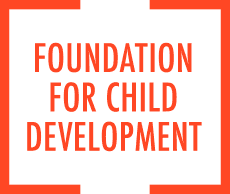The Foundation for Child Development has supported extensive research on young children of immigrants, many of whom are dual language learners, since the early 2000s. Today, one in four children in the United States is a child of at least one immigrant parent.
Research shows that children of immigrants and dual language learners can experience social, economic, and sociopolitical hardships and conditions that adversely influence their health, behavioral, and educational outcomes from an early age. Investment in children of immigrants is important for the nation’s future.
